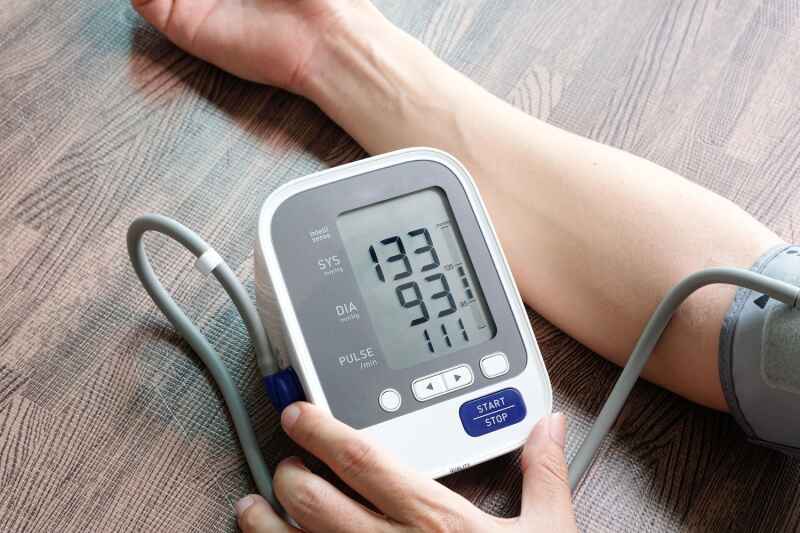Prolonged stress coupled with underlying health conditions can increase your cortisol levels. High cortisol levels can lead to a number of conditions, such as weight gain, acne and fatigue. The adrenal glands, located above the kidneys, make cortisol and maintain stress hormone levels.
What you need to know:
What is cortisol?

Cortisol is a stress hormone that acts like an internal alarm system. It interacts with various parts of the brain to regulate mood, motivation, and fear. Glucocorticoids, a steroid hormone, suppress inflammation in bodily tissues and regulate metabolism in muscles, fat, and bones. They also influence sleep cycles.
Cortisol is crucial for almost every organ and tissue, playing many vital roles, including:
- Regulating the body’s stress response
- Managing the metabolism of fats, proteins, and carbohydrates
- Suppressing inflammation
- Controlling blood pressure
- Regulating blood sugar levels
- Influencing the circadian cycle
The role of cortisol in the body’s stress response
During stress, your body releases cortisol following the “fight or flight” response caused by hormones like adrenaline to keep you on high alert. Cortisol also prompts the liver to release glucose (sugar) for quick energy during stressful situations.
Functions of cortisol
Cortisol and blood sugar regulation
Under normal conditions, cortisol balances the effect of insulin, a hormone produced by the pancreas, on blood sugar regulation. Cortisol raises blood sugar by releasing stored glucose, while insulin lowers it. Chronically high cortisol levels can lead to persistent high blood sugar (hyperglycemia), potentially causing type-2 diabetes.
Cortisol and immune system function
Cortisol is anti-inflammatory and regulates natural immune response. However, chronic elevations can cause the immune system to become “resistant,” leading to a buildup of stress hormones and increased production of inflammatory cytokines, further weakening the immune response.
Cortisol and metabolism
Cortisol helps control how your body responds to the fats, protein and carbohydrates you consume for energy.
Understanding cortisol levels
Cortisol levels in your body usually peak in the early morning and decrease throughout the day, reaching their lowest point around midnight. This pattern can shift if you work night shifts and sleep at different times.
For most blood tests measuring cortisol levels, the normal ranges are:
- 6 a.m. to 8 a.m.: 10 to 20 micrograms per deciliter (mcg/dL)
- Around 4 p.m.: 3 to 10 mcg/dL
Normal ranges can vary based on the lab, the time of day, and individual differences.
Symptoms of high cortisol levels

Common signs and symptoms of high cortisol levels are:
- Weight gain, particularly in the face and abdomen.
- Fatty deposits between the shoulder blades.
- Wide, purple stretch marks on the abdomen.
- Muscle weakness in the upper arms and thighs.
- High blood sugar, often leading to type-2 diabetes.
- High blood pressure (hypertension).
- Excessive hair growth (hirsutism) in individuals assigned female at birth.
- Weak bones (osteoporosis) and fractures.
You must contact your healthcare provider if you experience abnormal cortisol level symptoms, such as weight gain or sudden high or low blood pressure. They can conduct simple tests to determine if your other glands, such as the pituitary, are responsible for your symptoms.
Stay tuned to the Activ Living Community. Stay updated with the latest health tips and trends through expert videos, podcasts, articles, and much more on nutrition, fitness, mindfulness, and lifestyle conditions like Asthma, High Blood Pressure, Cholesterol, and Diabetes. Activ Living ke saath sahi sehat ki shuruaat ABHIkaro.
You may also be interested in the following blogs:
- How Does Insulin Therapy Make Life Easier For People With Diabetes?
- Sedentary Lifestyle And Diabetes: Transform Passive Life To Active Life
Popular Searches
How to lower blood pressure | Fruits good for liver | Unhealthy foods | Ragi Benefits | Basal Metabolic Rate | Acupressure points for High Blood Pressure | Ayurvedic medicine for blood pressure | How to control cholesterol at home | Homeopathy for Asthma | Biological Age | Home remedies for TB | Natural beta blockers | Negative effects of internet | Types of walking | Blood pressure calculator | Blood sugar calculator | BMI Calculator





 1800-270-7000
1800-270-7000





